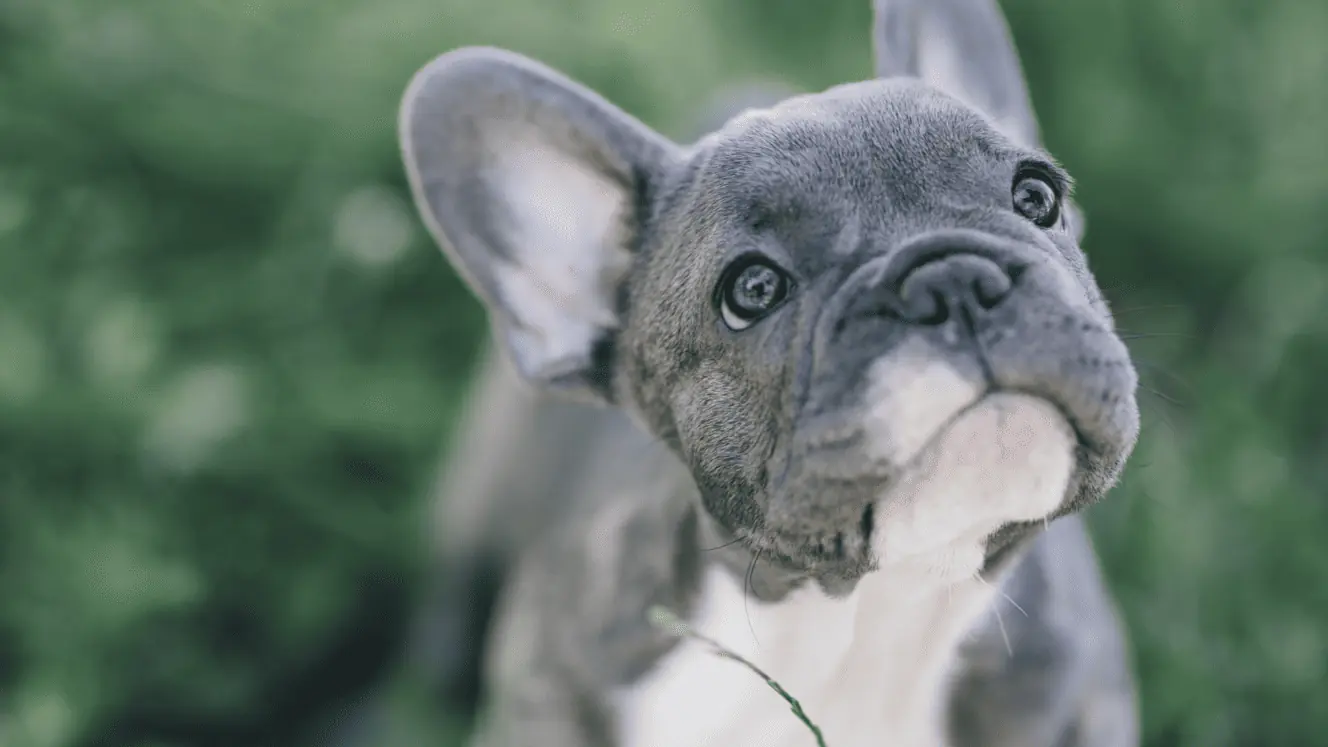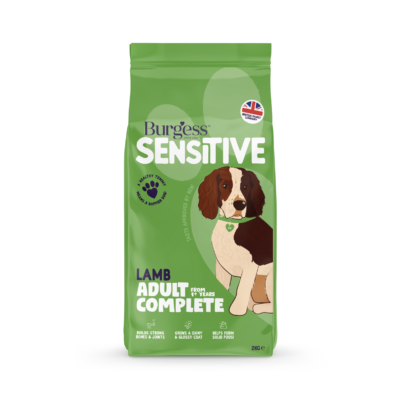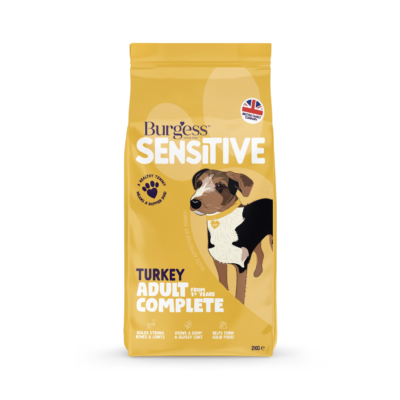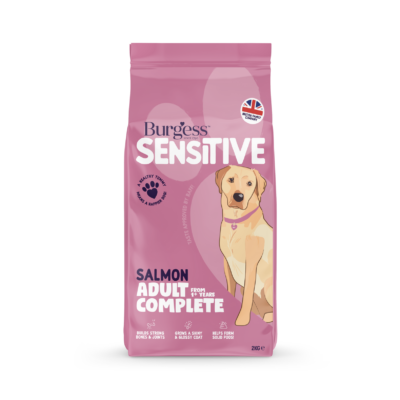
Described by The Kennel Club as “much loved as a family companion”, it’s important to be aware, as the American Kennel Club (AKC) notes, that “this extremely intelligent dog has a mind of their own”, which can prove a tad challenging at times!
According to the AKC, Boxer ancestry can be traced to the ancient Assyrians, as long ago as 2000 BC. For centuries, the ‘Bullenbeisser’, the Boxer’s ancestor, was used as a hunting dog for wild boar, bear, and deer. Experts believe that the modern Boxer, a refined version of the Bullenbeisser, was developed in Germany in the 1800s. By the early 1900s, the breed was well established as a sturdy, but elegant, working dog.
Boxers are big on love
The AKC adds: “In spite of their heritage as powerful and courageous hunters, one of the modern breed’s most appealing traits is a tremendous love for their owners and a need to be loved in return.” Pet Plan comments: “They might come from a hunting background, but their even temperaments make them kind and charismatic pets.”
Your Dog magazine enthuses: “The lovable Boxer has a big heart and bags of personality, so it's no wonder that the breed is the favourite of the working group.”
Understanding what makes your Boxer tick will help you give them everything they need to love life! Read on to discover more about:
- BOXER PERSONALITY PROFILE
- IS MY HOME SUITABLE FOR A BOXER?
- HOW MUCH EXERCISE DOES A BOXER NEED?
- WHAT SHOULD I FEED A BOXER DOG?
- HOW MUCH GROOMING DOES A BOXER NEED?
- WHAT’S THE BEST WAY TO TRAIN A BOXER?
- GETTING A BOXER
BOXER PERSONALITY PROFILE
“Boxers are entertaining and active dogs who thrive off company,” states veterinary charity PDSA. “They love spending time with their owners and letting their playful and fun characters shine through. They are eager to please and very loyal dogs.”
As they were originally bred to be working dogs, Boxers are bundles of energy who need plenty of exercise. They’re also renowned for their “kind and clownish natures which has made them popular family pets.”
The Boxer is an ideal breed for active families with older children
Describing the breed as playful, energetic and confident, Pet Plan says: “Boxer dogs are loyal, loving and considered a good dog for families, especially if you have an active lifestyle. Because of their loyalty, Boxers can be wary of strangers, but will rarely show aggression. Good socialisation from an early age will help your Boxer take meeting new people and pets in their stride.”
“Generally speaking, Boxers are good around children of all ages given the right training,” advises PDSA. “That said, due to their size and boisterous nature we wouldn’t recommend a Boxer if you have younger children as they could accidentally knock them over. An adult only home or one with teenagers is better for a Boxer.”
Whatever the breed, every dog is unique
While each breed has certain identifiable traits, it’s important to remember that every dog is unique.
Dogs Trust says: “Just like you, every dog is an individual with their own unique personality and prior experiences. So, every Boxer temperament is different. As dogs grow from puppies, they learn all about the world. They develop their own likes and dislikes and learn to respond to situations in different ways. For example, some dogs might like meeting other dogs, and some may not. Some might like new experiences and others may need to go slowly.”
Want just YOUR dog to come when you call them? Choose their name wisely! >>
IS MY HOME SUITABLE FOR A BOXER?
To create a perfect canine/human partnership, it’s vital to think about what kind of energy and temperament you’d like your four-pawed friend to have so you’re a good match for each other – and that you can provide a suitable environment.
The Kennel Club recommends that Boxers require a large house and garden, while Pet Plan advises: “Boxers can adapt to most environments as long as they get plenty of exercise.”
At the top of the list of Boxer requirements is plenty of time spent with their family. PDSA says: “Boxers love human company so can develop separation anxiety if left alone. If they are alone or bored, they like to chew, which means your furniture and belongings will be at risk! It’s best to have a Boxer if someone is going to be around the house with them all day.”
Which breed of dog is the right fit for you and the place that you live? >>
Pet Plan adds: “When properly socialised, Boxers are patient and protective making them a good fit for households with children. Boxers are generally friendly with anyone they consider to be part of their ‘pack’ – cats included! Boxer dogs are usually a good fit for multi-pet households, but beware – their boisterous behaviour and playful nature might prove too much for other pets!”
Can cats and dogs be friends? >>
HOW MUCH EXERCISE DOES A BOXER NEED?
If you enjoy lots of brisk outdoor walks, then a Boxer could be your perfect canine companion. Pet Plan says: “Boxers are known for their high-energy personalities, so be prepared for plenty of walks and playtime to keep this fun-loving canine out of mischief!”
While growing puppies and older dogs need less exercise, PDSA advises that an adult Boxer “will need day a minimum of two hours exercise every day. This should be split into a few walks with plenty of opportunities for sniffing around and exploring. You should also give your Boxer plenty of time to exercise off lead somewhere secure so they can have a good run around. They will also need lots of playtime and free time in the garden to do what they want.”
TOP TIP!
Bright and willing to learn, Boxers have been used as military messengers, guide dogs and in rescue operations. They thrive on human interaction and playtime, including running after tennis balls and even swimming.
Source: Pet Plan
Because Boxers are a brachycephalic breed, meaning they have a short snout, they are prone to overheating, especially in hot summer months.
Pet Plan advises: “It’s best to spread walks and exercise out throughout the day. Make sure they have access to plenty of water as well as shady spots to escape the heat. To reduce the risk of gastric problems, it’s best not to feed your Boxer dog immediately before exercise.”
The insurer adds: “Between walks, make sure your Boxer’s brain is getting a workout too – this intelligent breed needs plenty of mental stimulation to stop them from becoming bored.” Try some fun puzzle games along with slow feeders or Kongs stuffed with dry dog food and lick mats for spreading soft treats on to keep your Boxer happily occupied.
WHAT SHOULD I FEED A BOXER DOG?
Burgess in-house vet, Dr Suzanne Moyes MVB MRCVS, who oversees recipe development and product production, advises: “When choosing food for Boxers, it’s essential to bear in mind that the optimum diet for your dog is one that supplies the correct number of calories and balance of nutrients for their life stage and lifestyle. This means calculating the nutrient content and dietary components such as protein, fat, carbohydrate and vitamins and minerals required. All Burgess Dog Food is a complete food. This means, whatever kibble variety you choose for your Boxer, it will contain all the nutrients they need in the correct balance.”
What’s the best food for Boxer dogs? >>
As The Kennel Club notes, some brachycephalic dogs, such as Boxers, may have an excess of skin, which creates folds, especially around the front of the face, which is perfect for bacteria and yeast to grow, leading to infection and severe itching. Because Boxers can sometimes suffer from itchy skin, choosing a hypoallergenic recipe that’s designed for dogs with sensitivities may help.
“Dogs with sensitivities can benefit from hypoallergenic dog food that’s made without many of the typical ingredients known to cause upset tummies or skin problems,” explains Dr Moyes. “These ingredients can include beef, eggs, dairy, wheat, maize, and soya. For many dogs, switching to a sensitive dog food (which means it’s relatively unlikely to cause an intolerant reaction) can be really helpful, although you should always ask your vet for advice.”
Human food that you should never give to dogs >>
TOP TIP!
Your Boxer’s diet will vary depending on their age. Feed them good quality, commercially available, complete dog food, splitting their daily allowance into two meals. If you give your dog the occasional treat, reduce their daily allowance to keep them slim and healthy. Treats shouldn’t make up more than 10% of their daily calorie intake.
Source: PDSA
In addition, dogs with a shortened skull often have a shortened jaw, but the number and size of teeth will stay the same. This can mean that the teeth become overcrowded, causing dental and gum problems.
Choosing to feed a dry kibble food over wet canned food can help. The RSPCA stresses the importance of feeding your dog the right food, stating: “Some owners favour wet foods for their dog over dry. However, dry dog food may have the added benefit of exercising their chewing muscles and provide a mild cleaning effect on the teeth.”
Pet Plan adds: “Crunchy biscuits will help to maintain good dental health, as Boxers can sometimes suffer from bad breath.”
Smile please! The ultimate guide to looking after your dog’s teeth >>
HOW MUCH GROOMING DOES A BOXER NEED?
If you’re looking for a dog that doesn’t need much grooming to look smart and slick, then a Boxer will meet the brief!
PDSA says: “Boxers are fairly low maintenance when it comes to grooming. They have short fur which only needs a weekly brush to keep it in good condition. As with any dog, you should expect your Boxer to shed throughout the year, more so in spring and autumn. A regular hoover should be enough to keep on top of it.”
The folds of skin on their face and their ears do, however, require special attention. PDSA adds: “Due to the excess skin around their faces, Boxers are at risk of developing a condition called skin fold dermatitis. It’s important to make sure the folds of skin are kept clean and dry, so they don’t get infected.”
Pet Plan adds: “Grooming sessions are a good time to check your Boxer’s ears for signs of infection such as black or brown wax or a strange smell.”
WHAT’S THE BEST WAY TO TRAIN A BOXER?
When it comes to training any dog, it’s all about positive learning.
PDSA says: “Boxers are clever dogs but can be boisterous, so positive, reward-based training from a young age is really important. Boxers mature a lot slower than other breeds, so having a large amount of puppy energy in such a big dog can be challenging for some owners. For this reason, we wouldn’t recommend a Boxer if you are a first-time owner. You need to handle your Boxer with a firm but fair attitude and make sure you are patient and consistent. If you need any help with training, we’d recommend taking them to accredited training classes.”
Dogs Trust advises: “Find out what your dog loves so you can use this to reward them after a success. Whether it’s treats, toys or lots of praise, training with rewards is the best way for your dog to learn. As dogs are clever animals, they need suitable mental and physical exercise so that they don't get bored. Learning useful life skills such as recall, loose lead walking and settling are just as important. This ensures that you and your dog can spend enjoyable time together, both at home and out and about.”
TOP TIP!
Since Boxers are stocky, muscular dogs, early lead training is essential, before they get too strong to manage.
Source: Pet Plan
“As their trainer, you must be patient, consistent, and creative,” says AKC. “A Boxer becomes bored with repetition and may, given their sense of humour, invent their own idea of obedience or agility during training!”
Crate training: Making your dog’s ‘indoor kennel’ their special place >>
Socialisation – essentially the method by which puppies learn how to cope with their world as they grow – is also key.
PDSA adds: “Boxers are friendly dogs but do have a natural guarding instinct and can be protective, so it’s important to socialise your Boxer from a young age with lots of different people, dogs and experiences so they grow into happy and confident adults.”
For expert advice and practical training guidance, visit Dogs Trust Dog School >>
GETTING A BOXER
PDSA advises: “Do plenty of research before getting a Boxer. These playful and lively dogs keep their puppy ways well into their adult years so need an understanding owner with plenty of time and patience! Boxers can be really loving in the right household and will love spending time with you.”
Be aware that, like many purebred dogs, Boxers are prone to certain health problems. These include brachycephalic obstructive airway syndrome (BOAS), which can cause severe breathing problems, hip dysplasia, epilepsy, skin issues and eye problems such as corneal ulcers due to the shape of their skulls and prominence of the eyes.
PDSA adds “If you are thinking of buying a Boxer puppy, make sure the parents of your puppy have had the relevant health screening to reduce the chances of your puppy being affected by certain conditions. We’d recommend looking for a Kennel Club Assured Breeder as they meet extra requirements which will benefit your puppy’s health.
Dogs Trust recommends: “Whatever the breed, all dogs need basic preventative health care like vaccinations and flea and worming treatments. You’ll also need insurance to help cover the cost of vet bills.”
The comprehensive puppy checklist >>
Alternatively, there are a number of rescue organisations around the country, including Boxer Rescue Southern, Boxer Dog Rescue, Notts and Yorkshire Boxer Rescue, Home Counties Boxer Welfare and Dogs Trust that would love to hear from you. Staff will seek to match you with the right dog for your home and lifestyle and provide you with support and useful information about the breed. By choosing a rescue Boxer, you’ll be giving one of these loyal and loving dogs a second chance at a happy and fulfilling life.
The best breed of dog is rescue >>
Need more advice?
If you’re at all unsure about the best way of feeding your dog or have any concerns about specific nutritional requirements, ask your local veterinary practice for advice. You can also call our expert team, available 9am-5pm, Monday to Friday, on +44 (0)1405 862241 who’ll be happy to help. Alternatively, use our online contact form to get in touch.
CARE MORE Find lots of useful advice on caring for your dog from Burgess, the pet experts. Training, nutrition, grooming and general care. It's all here >>
FOR CANINES WITH SENSITIVITIES, TRUST BURGESS DOG FOOD
Burgess Sensitive dog food range caters for your dog at every stage of their life – all the way through from puppy to senior. Sensitive stomach puppy food is suitable for both puppies from 6 weeks to 12 months old and nursing mothers. Sensitive adult dog food is designed for dogs over the age of 12 months – choose from lamb, turkey and salmon. For dogs over the age of 7, sensitive senior dog food is a perfect option.
Is your dog a Burgess dog? Join the Burgess Pet Club for exclusive offers and rewards.
If you found this interesting, you may also like:
DOG DAYS From puppy to adolescent, through to adult and senior, as your dog goes through different stages, their exercise and nutrition needs change. Find out how to help them stay happy and healthy every day of their lives...
OPEN UP YOUR EYES TO YOUR DOG’S WORLD Understanding how your four-pawed pal interprets the world through their five senses can help you provide them with the best, most enriching life.
DOGS EAT GRASS – BUT WHY? There are all sorts of theories as to why they do it – from fulfilling their natural omnivore instinct to improving digestion or simply because they enjoy the interesting taste and texture – but no one’s exactly sure why.
BACK TO DOG SCHOOL Training is an essential part of dog ownership and, whatever age your dog is, training should be part of their regular routine.
BEST BEHAVIOUR – HOW TO TRAIN YOUR DOG TO MAKE A POLITE HELLO Most dogs get really, really excited when they meet a friendly human on their walk – Jumping up, twirling and barking. While this can be cute when they’re a small puppy, it’s not so good when they grow into their paws and jump all over the person in question!
DOG TRAINING MYTHS BUSTED All sorts of people have opinions on the best ways to train a canine – but it’s essential to only take advice from expert, trusted sources.
GIVE THE DOG A CHOICE As humans, our lives consist of choices. Yet, how much of a say do our dogs have about what they do, how they do it and when? Could letting them make their own decisions really make them happier?
DOG BEHAVING BADLY? What’s the thing that your dog does that you find baffling, frustrating or even downright annoying? Barking at people walking past the window, ripping up the post, digging holes in the lawn, eating food out of the bin or running off with your slippers?
HOW TO TEACH YOUR DOG THAT IT’S CHILL OUT TIME Are you struggling to find your dog’s off button? While some canines are natural couch potatoes, others need a little encouragement to learn to settle down and be calm. Our expert step-by-step training plan can help.
FUN AND GAMES IN THE DOG PARK Going to the park is the highlight of many dogs’ day as it’s a chance for canine chums to enjoy a meet and greet and dash about with their best buddies. However, not every dog-to-dog interaction goes to plan and there are definite rules of the game.
COULD YOUR DOG BE ALLERGIC TO YOUR HOUSE? Our four-legged friends can be allergic to all sorts of things, from chemicals in cleaning products to pollen, dust, fleas and even smoke from cooking.
DID YOU KNOW THAT OUR PETS CAN SUFFER FROM HAY FEVER TOO? While the cause of pollen allergy is the same in pets as it is in humans, the signs that your pet is suffering from hay fever can be a little different.
FOOD ALLERGIES UNDER INVESTIGATION Itchy skin, upset tummy, weight loss? These can all be symptoms caused by diet. If you suspect food could be the issue, where do you start?
ARE YOU READY FOR A DOG? Taking on a dog is a huge decision. It requires money, time and commitment. Here are some of the things you’ll need to consider...
PET INSURANCE EXPLAINED Can you get pet insurance for pre-existing conditions? Can you get pet insurance for older pets? Can you get multi-pet cover? We answer some of the most commonly asked questions to help you make an informed decision about pet insurance.
PROTECT YOUR PET’S HEALTH DURING THE COST-OF-LIVING CRISIS There’s no doubt that this can be especially challenging during the current cost-of-living crisis. However, there’s lots you can do – and help is available for people and pets most in need.
FAD DIETS – SHOULD DOG OWNERS BE WORRIED? Raw, grain free or home-cooked? The range of options for feeding your dog seems to be ever expanding. But what do animal nutrition experts have to say about it?

















